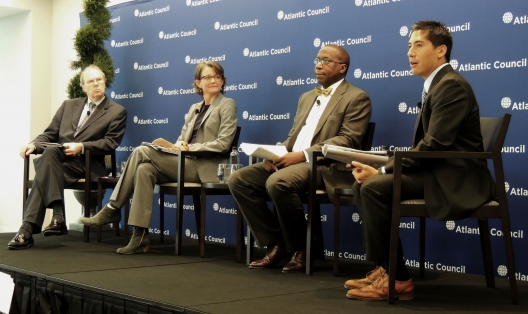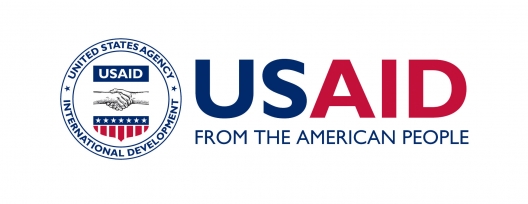 On October 31, 2013, the Strategic Foresight Initiative (SFI) of the Brent Scowcroft Center on International Security hosted the launch event for USAID’s Policy for an Urbanizing World.
On October 31, 2013, the Strategic Foresight Initiative (SFI) of the Brent Scowcroft Center on International Security hosted the launch event for USAID’s Policy for an Urbanizing World.
The audience was welcomed by Barry Pavel, vice president and director of the Brent Scowcroft Center on International Security, to the event which is a part of SFI’s Urban World 2030 project. Mr. Pavel highlighted the need to build urban resiliency because, as we saw with the aftermath of Hurricane Sandy one year ago, even the developed world needs to learn how to build better cities. His welcome was followed by introductory remarks from Mark Feierstein, associate administrator of the US Agency for International Development (USAID). Mr. Feierstein emphasized that USAID wrote and researched the Policy on Sustainable Service Delivery in an Increasingly Urbanized World, by taking into consideration the projection that 70 percent of the world will live in cities by 2050. USAID’s new policy is expected to position the agency to capitalize on an urban future by assisting governments to deliver services in an inclusive, transparent, and sustainable manner.
Following these remarks, Shadrock Roberts, principal GIS analyst of the GeoCenter in the Office of Science and Technology at USAID, showcased Open Cities, a project done in collaboration with the World Bank to assist urban planning and make cities like Kathmandu, Nepal more resilient by helping locals use open data and supporting social innovation. After the presentation, Dr. Mathew J. Burrows, director of SFI, moderated a panel of experts: Jennifer Bradley, fellow and senior advisor of the Metropolitan Policy Program and codirector of the Great Lakes Initiative at the Brookings Institution, Steven Feldstein, director of USAID’s Office of Policy in the Bureau for Policy, Planning, and Learning, and Alonzo Fulgham, vice president for strategy and sustainable international development at CH2M HILL. Ms. Bradley stressed the importance of using the power of networks because city governments can change with every election but these issues require sustained efforts. Mr. Fulgham pointed out that the private sector must be made aware of its influence in building sustainable cities since it is a key factor in driving economic growth. Mr. Feldstein indicated that urbanization is not a new, standalone area of concern for USAID and that the organization seeks to spread aid across the rural-urban spectrum by building effective networks capable of inventing and implementing innovative solutions to local challenges.
All in all, the panelists agreed that the problems arising from rapid urbanization require utilizing the comparative advantages of the private and public sector along with local community participation. In our urbanized future, it will be crucial for international aid agencies to be prepared to administer their services in dense locales far removed from their traditionally rural outposts. USAID’s new policy will position the agency to capitalize on an urban future by assisting governments to deliver services in an inclusive, transparent, and sustainable manner.

